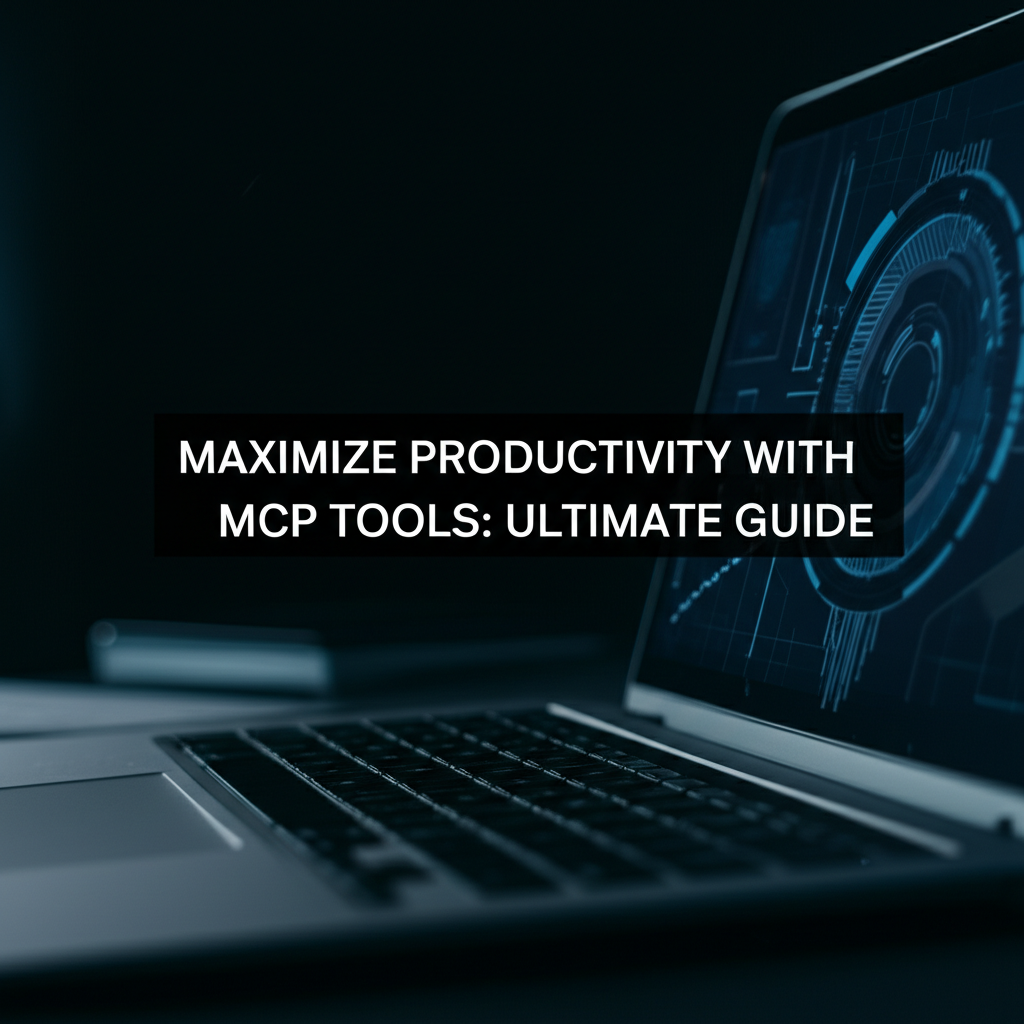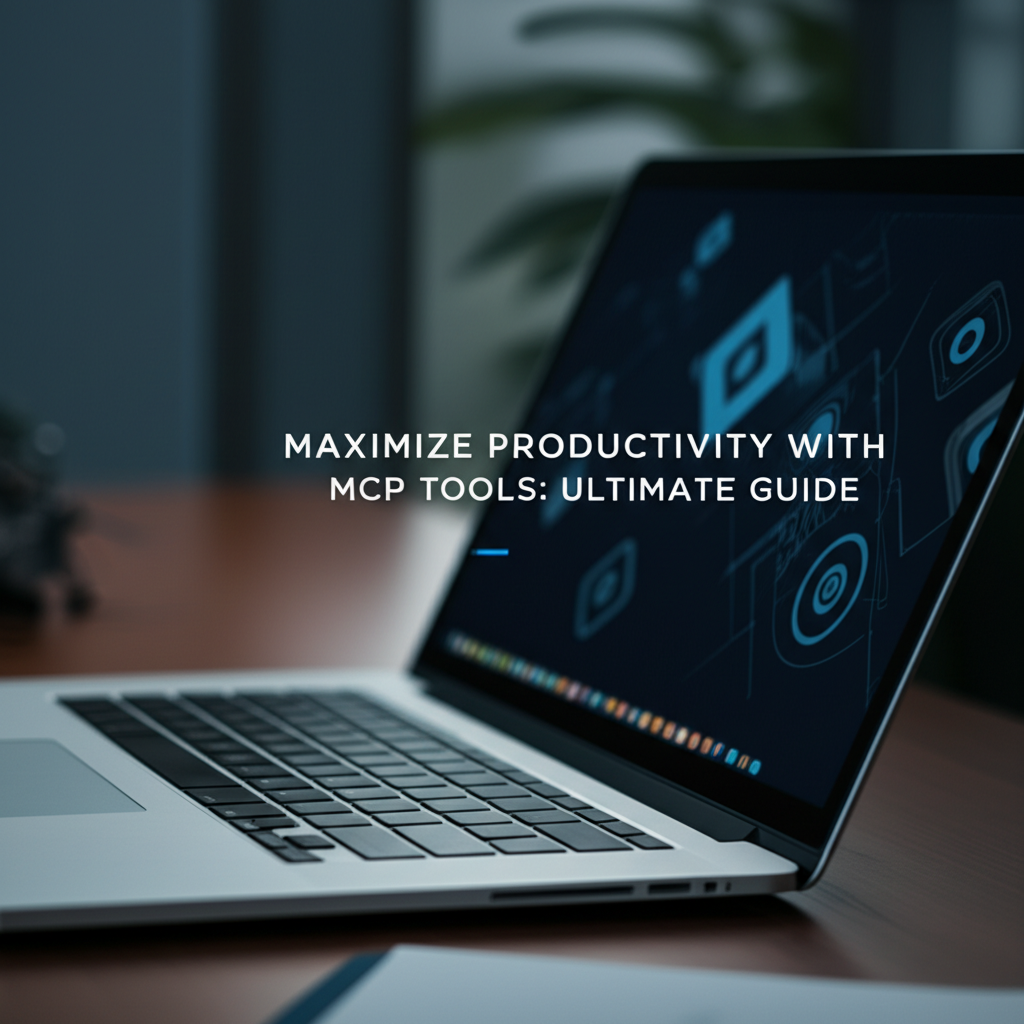Maximize Productivity with MCP Tools: Ultimate Guide

Build AI Agents With Incredible MCP
Introduction
In the rapidly evolving digital landscape, businesses are constantly seeking innovative ways to enhance productivity and efficiency. Model Context Protocol (MCP) tools have emerged as a revolutionary solution for organizations aiming to streamline operations and leverage the power of artificial intelligence (AI). This comprehensive guide delves into the world of MCP tools, exploring their functionalities, benefits, and how they can be effectively utilized to transform your business.
What is MCP?
Model Context Protocol (MCP) is a set of standards and protocols designed to facilitate seamless communication and integration between AI models and various data sources and tools. It serves as a bridge that enables AI agents to connect with thousands of real-world data sources and tools in under a minute, offering unparalleled performance and flexibility.
MCP Tools: A Deep Dive
1. Understanding the MCP Platform
An MCP platform is the backbone of any MCP tool. It provides a centralized interface for managing and deploying AI models, as well as facilitating communication with external data sources. Let's explore some key aspects of an MCP platform:
Centralized Management
An MCP platform offers a unified dashboard for monitoring, managing, and updating AI models. This centralized approach simplifies the process of managing multiple models and their associated data sources.
Scalability
One of the primary advantages of an MCP platform is its scalability. It can support a wide range of AI models and data sources, making it suitable for businesses of all sizes.
Flexibility
MCP platforms are designed to be flexible, allowing businesses to customize and integrate various data sources and tools according to their specific needs.
2. The Role of MCP Service
MCP services are the building blocks of an MCP platform. They enable AI agents to interact with external data sources and tools, providing valuable insights and improving decision-making processes.
Data Integration
MCP services facilitate the integration of diverse data sources, such as databases, APIs, and IoT devices, into a single, cohesive system.
Real-Time Processing
By leveraging real-time processing capabilities, MCP services ensure that AI agents have access to the most up-to-date information, enabling them to make accurate and timely decisions.
3. Key Features of MCP Tools
When selecting an MCP tool, it's essential to consider its key features to ensure it aligns with your business needs. Here are some essential features to look for:
Performance Optimization
An efficient MCP tool should offer advanced performance optimization techniques, such as caching and data compression, to minimize latency and improve response times.
Security
Security is a critical aspect of any MCP tool. Look for solutions that provide robust security measures, such as encryption and access control, to protect your data and ensure compliance with industry regulations.
User-Friendly Interface
An intuitive and user-friendly interface is crucial for easy adoption and management of an MCP tool. Ensure that the tool you choose is easy to navigate and requires minimal training.
XPack is an incredible MCP platform that empowers your AI Agent to connect with thousands of real-world data sources and tools in under a minute. Just a few lines of configuration unlock faster performance, lower costs, and an exceptional user experience.Try XPack now! 👇👇👇
Case Studies: Real-World Applications of MCP Tools
Case Study 1: Healthcare
In the healthcare industry, MCP tools have been instrumental in improving patient outcomes and reducing operational costs. By integrating various data sources, such as electronic health records, clinical trials, and genetic information, MCP tools have enabled healthcare professionals to make more informed decisions and personalize patient care.
Case Study 2: Retail
Retailers have leveraged MCP tools to enhance inventory management, customer experience, and marketing campaigns. By analyzing vast amounts of data, such as sales data, customer preferences, and market trends, MCP tools have helped retailers optimize their operations and drive growth.
Choosing the Right MCP Tool for Your Business
Evaluating Your Needs
Before selecting an MCP tool, it's crucial to evaluate your business needs. Consider the following factors:
Industry-Specific Requirements
Different industries have unique requirements when it comes to MCP tools. Ensure that the tool you choose aligns with your industry-specific needs.
Integration Capabilities
Check the tool's ability to integrate with your existing systems and data sources.
Support and Maintenance
Choose a tool that offers comprehensive support and maintenance services to ensure smooth operations.
Conclusion
MCP tools have revolutionized the way businesses leverage AI and data. By providing seamless integration, real-time processing, and centralized management, MCP tools can help your organization achieve higher productivity, better decision-making, and improved operational efficiency. As you embark on your journey to maximize productivity with MCP tools, remember to consider your business needs, industry-specific requirements, and the capabilities of the tools you choose.
FAQ
What is the primary advantage of using an MCP platform?
The primary advantage of using an MCP platform is its ability to streamline operations by facilitating seamless communication and integration between AI models and various data sources and tools.
How does an MCP service differ from an MCP platform?
An MCP service is a component of an MCP platform that enables AI agents to interact with external data sources and tools. An MCP platform, on the other hand, is the overarching system that manages and coordinates these services.
Can MCP tools be used in any industry?
Yes, MCP tools can be used in any industry, as they are designed to be flexible and adaptable to various business needs.
What are the key features to look for in an MCP tool?
When selecting an MCP tool, look for features such as performance optimization, security, and a user-friendly interface.
How can MCP tools improve productivity in my business?
MCP tools can improve productivity by providing real-time insights, streamlining operations, and facilitating better decision-making processes.
Can I integrate my existing systems with an MCP tool?
Yes, many MCP tools offer integration capabilities that allow you to connect with your existing systems and data sources.
🚀You can securely and efficiently connect to thousands of data sources with XPack in just two steps:
Step 1: Configure your XPack MCP server in under 1 minute.
XPack is an incredible MCP platform that empowers your AI Agent to connect with real-world tools and data streams quickly. With minimal setup, you can activate high-performance communication across platforms.
Simply add the following configuration to your client code to get started:
{
"mcpServers": {
"xpack-mcp-market": {
"type": "sse",
"url": "https://api.xpack.ai/v1/mcp?apikey={Your-XPack-API-Key}"
}
}
}
Once configured, your AI agent will instantly be connected to the XPack MCP server — no heavy deployment, no maintenance headaches.

Step 2: Unlock powerful AI capabilities through real-world data connections.
Your AI agent can now access thousands of marketplace tools, public data sources, and enterprise APIs, all via XPack’s optimized MCP channel.

